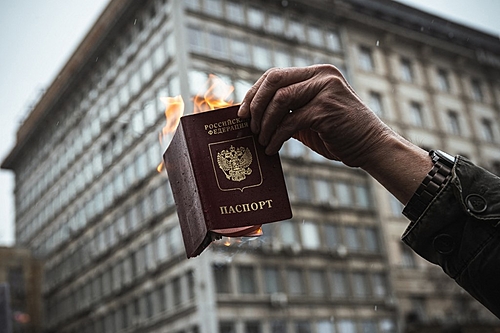
Finland announced on Friday (15) that it will ban cars registered in Russia from entering the country from this Saturday (16). The measure also applies to citizens who have dual citizenship and follows the same decision taken by Lithuania, Latvia and Estonia the previous week.
According to the Finnish Ministry of Foreign Affairs, an exception will be made for European Union citizens permanently residing in Russia and for members of their families, as well as for diplomats and people with an equivalent level. People traveling to the country for humanitarian reasons will also be allowed to pass through.
:: Kim Jong-un tells Putin Russia has started ‘sacred fight to protect its sovereignty’ ::
Foreign Minister Elina Valtonen said the restrictions will also affect Russian cars already in Finland. According to her, these vehicles must leave the country within six months, that is, before March 16.
The only European country where it is currently possible to enter a car with Russian license plates is Norway, which shares a border with Russia through the Murmansk region.
On September 8, the European Commission issued clarifications on how EU countries should enforce the ban on imports of sanctioned goods from Russia, including cars, personal clothing and hygiene items. The organization later highlighted that customs authorities should focus on imported cars, while other items, including clothing, should be subject to a “proportionate and reasonable” ban.
:: Russia sends troops to the borders with Finland and Poland, raising tension in Europe ::
Finland had been resisting applying the ban on the entry of Russian cars, but later changed its mind.
The decision had a negative impact even among representatives of the Russian opposition. The Anti-Corruption Fund (FBK), linked to oppositionist Alexey Navalny, appealed to the authorities of Latvia, Lithuania and Estonia with a request to reconsider the ban decision. According to FBK, the restrictions harm opponents of the Russian authorities who are forced to leave Russia for political reasons. Furthermore, the FBK believes that these restrictions discredit the very idea of sanctions against Moscow.
Editing: Nicolau Soares
Source: www.brasildefato.com.br

